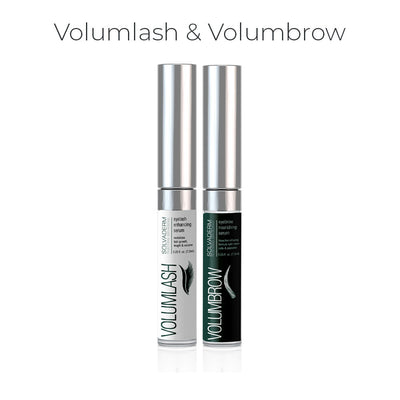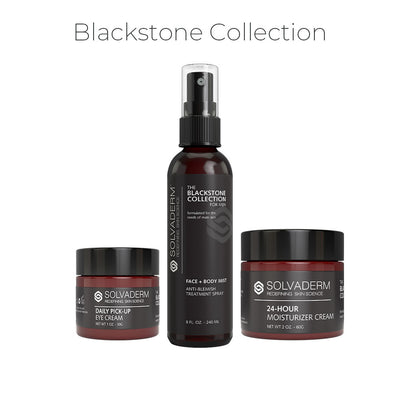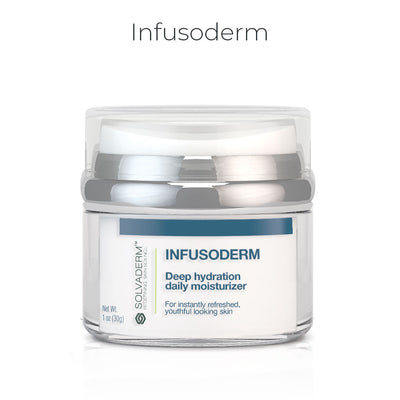Retinol is a superstar in your beauty regimen, and people call it the gold standard for its exfoliating, anti-aging, and collagen-boosting properties. However, it can do much more than that. Retinol is a multi-purpose ingredient that can reduce acne, balance skin tone, and treat hyperpigmentation. Thanks to the numerous benefits of retinol for skin health, many products include it.
To reap the benefits of this potent agent, you need to know how to apply retinol, as using too much can cause excessive dryness, irritation, and peeling. Hit the sweet spot, and you boost skin cell turnover.
What is Retinol?
Retinol is a Vitamin A derivative with several uses in the beauty industry. This ingredient is a topical serum, ointment, lotion, gel, or cream that you can apply directly to your skin. It is also an active ingredient in many beauty and skincare products.
You don’t need a prescription, but we recommend speaking to a dermatologist first to ask them when to use retinol and if it’s appropriate for your complexion. You may need to apply prescription medication with a higher concentration depending on your skin problem.
What Can Retinol Do?
Our skin changes as we age and move through different life stages, like puberty, pregnancy, and menopause. Over time, the transformations in our body also begin to impact the skin. Your complexion loses moisture and may develop wrinkles, fine lines, and other signs of aging with the passing years.
While skin aging is normal, applying quality products can delay these signs and promote youthfulness. Retinol can help with this, as according to a 2022 study [1], the benefits of retinol for skin health make it essential in treating dermatologic issues. Evidence indicates that it may visibly diminish the look of wrinkles and fine lines, smooth the skin surface, and mitigate the effects of hyperpigmentation.
Retinol works differently from many other products for mature skin. Instead of only removing dead skin cells, it delves deeper under the surface. According to research [2], these tiny molecules penetrate the dermis, combatting free radicals and offering profound repair and healing benefits.
Retinoids vs. Retinol: What is the Difference?
Retinoids are Vitamin A derivatives. Originally designed to combat acne, they are ideal for tackling everything from mild breakouts to severe acne, scars, and clogged pores. However, the skin-transforming properties of retinoids extend beyond that, as they can smooth wrinkles, rejuvenate the complexion, balance skin tone, and improve skin texture.
Retinol is an ingredient belonging to the retinoid family. Like retinoids, it is derived from Vitamin A and can work wonders on your skin. You may see retinol as an ingredient in many over-the-counter skincare products.
To determine how often to use retinol, you should consider its potency. Although its strength may vary depending on the product, it is typically less potent than prescription retinoid. Retinol is less likely to cause unwanted side effects, such as skin irritation or dryness, and is ideal for mild skin problems.
What Is the Right Age to Start Using Retinol?
There is no specific age to begin using retinol, but many women first apply it in their late 20s when elastin and collagen levels decline. Others use it in their 30s to balance skin tone and improve texture. However, teenagers may also apply retinol to treat acne and blemishes. It’s a popular option if you have regular breakouts and want to reduce the size of your pores. Are you wondering how often to use retinol? The answer depends on your tolerance for the ingredient.
The Benefits of Retinol for Skin Health
Retinol has tremendous advantages for the complexion. We compiled a list of the top benefits of retinol for skin health with regular use.
1. Fades Dark Spots
One of the primary benefits of retinol for skin health is its ability to fade dark spots. Studies [3] indicate that this ingredient has potent, soothing anti-inflammatory agents and brightens the complexion.
2. Heals Sun-Damaged Skin
Another one of the benefits of retinol for skin health is that it may reverse sun damage. With regular application, it stimulates elastin production, thickens the dermis, and speeds up the healing of sun-damaged skin.
3. Reduces Hyperpigmentation
Retinol reduces the production of an enzyme that makes the pigment melanin called tyrosinase, and according to clinical trials [4], it may fade hyperpigmentation. The best retinol for beginners is a lower-concentration product, so look for options labeled gentle or mild.
4. Diminishes Wrinkles and Fine Lines
Retinol offers several anti-wrinkle benefits, including boosting skin cell turnover [5] to create newer cells and increasing collagen levels in the dermis to smooth wrinkles and fine lines.
Suvoderm retinol night cream is a game-changer when it comes to promoting younger-looking skin. This moisture-rich formula works its magic while you sleep to boost collagen, smooth signs of age, and give you a luminous glow. With consistent use, it balances skin tone and promotes a radiant complexion.
5. Prevents Acne Breakouts
Preventing and reducing acne is one of the most powerful benefits of retinol for skin health, making it the number one choice for this issue. Depending on the severity of the condition, it may treat flare-ups in a few weeks.
6. Soothes Inflamed Skin
A wealth of clinical research [6] indicates that retinol has anti-inflammatory compounds, however, it may also irritate the skin. The best retinol for beginners is a formula with a 0.25% concentration. If you don’t have sensitive skin, you may use a 0.5% concentration.
7. Brightens Skin Tone
Retinol can speed up cell turnover, which sheds the hyper pigmented cells more quickly to reveal a brighter surface.
When Should I Use Retinol?
Are you uncertain about when to use retinol? For best results and to prevent daytime sun damage apply it at night.
Retinol is very light-sensitive, so it comes in dark or light-blocking packaging. The best retinol for beginners is a formula with a lower than 0.5% concentration, or you may experience side effects.
How to Apply Retinol for Best Results
This is our recommended skincare routine, including a step-by-step guide on how to apply retinol:
Step 1: Cleanser
Begin your routine by cleansing your face to eliminate debris, dirt, or excess oil. Splash water on your skin and then apply the product, work it into a lather, and rinse. We recommend Rejuvoderm Clarifying Cleanser as it invigorates the skin, opens the pores, and eliminates dead cells and debris.
In addition to keeping the skin optimally cleansed, it also replenishes lost moisture and boosts elasticity. Rejuvoderm contains lavender oil, which softens and soothes the complexion. The formula also reduces sebum production to prevent whiteheads and blackheads.
Step 2: Toner
Follow up your cleanser with a toner to calm and refresh the complexion. This product can balance pH levels and remove leftover makeup or oil from your skin. To apply it, add some of the formula to a cotton ball and softly wipe it across your face. Spritz the toner on your skin and let it air dry if you use a spray bottle.
Step 3: Retinol
Take a pea-sized amount of retinol and spread a thin layer over your face, avoiding the eyes, nose, and mouth. The best retinol for beginners should also include other bioactive ingredients that can nourish the skin and reduce inflammation like aloe vera, Vitamin E, and hyaluronic acid.
Step 4: Moisturizer
The next step is applying a layer of moisturizer to your skin and neck. Take charge of your skincare routine with Infusoderm Deep Hydration Daily Moisturizer, an ideal choice for everyday use. You experience instant refreshment as this ultra-light moisturizer hydrates the skin. The formula is rich in potent antioxidants that can give you a plump, youthful appearance. Enjoy a radiant glow that speaks volumes because your skin deserves nothing but the best!
How Often to Use Retinol?
More is not always better, and with retinol, having patience and applying it consistently should give you the desired results. Begin by using it once a week to see how your skin reacts. Are you still wondering when to use retinol? If your skin doesn't develop side effects like inflammation or irritation, use it every other day [7] for the first two weeks, then 2 or 3 times a week.
FAQs
Should you use retinol daily?
Do you want to know how often to use retinol, and whether you can apply it daily? Retinol is an antioxidant that you can use every day in low concentrations, but ideally, we recommend no more than 2-3 times a week. To reduce the risk of side effects, start with a low dose of 0.25% or 0.5%. Then slowly work your way up as your skin adjusts to the ingredient.
Should you moisturize after applying retinol?
Tailor your moisturizing routine to suit your needs, but most people apply it once or twice daily. You should use moisturizer after applying retinol, as it can tackle the sensitivity and dryness that can occur overnight.
Are you unsure about how to apply retinol?
Always use this ingredient on dry skin, because the active ingredient may irritate a damp complexion.
How do you know if retinol is working?
You know that retinol is working well when there are noticeable changes in the overall appearance, feel, and texture of your skin.
Wrap Up
Retinol is one of the go-to choices for skin health, and people use it to prevent and eliminate breakouts, wrinkles, dark spots, and more. Now that you know when to use retinol, you can let it work its magic.
References
1] ↑https://pubmed.ncbi.nlm.nih.gov/35816071/
2] ↑https://www.ncbi.nlm.nih.gov/pmc/articles/PMC4003367/
3] ↑https://www.ncbi.nlm.nih.gov/pmc/articles/PMC8776661/
4] ↑https://pubmed.ncbi.nlm.nih.gov/32428912/
5] ↑https://www.ncbi.nlm.nih.gov/pmc/articles/PMC6791161/
6] ↑https://pubmed.ncbi.nlm.nih.gov/12553848/
7] ↑https://www.healthline.com/health/beauty-skin-care/how-often-to-use-retinol










